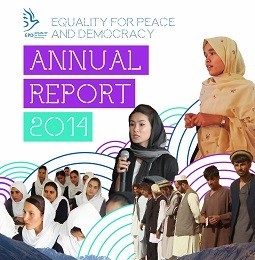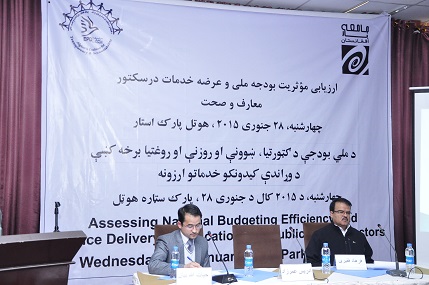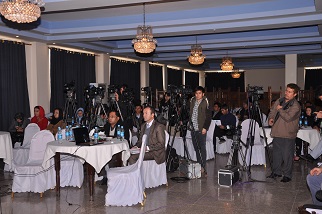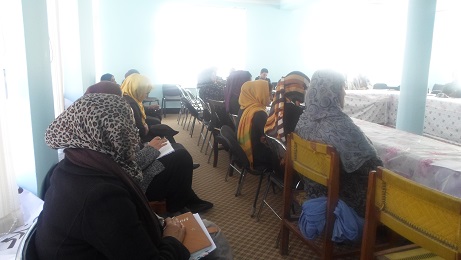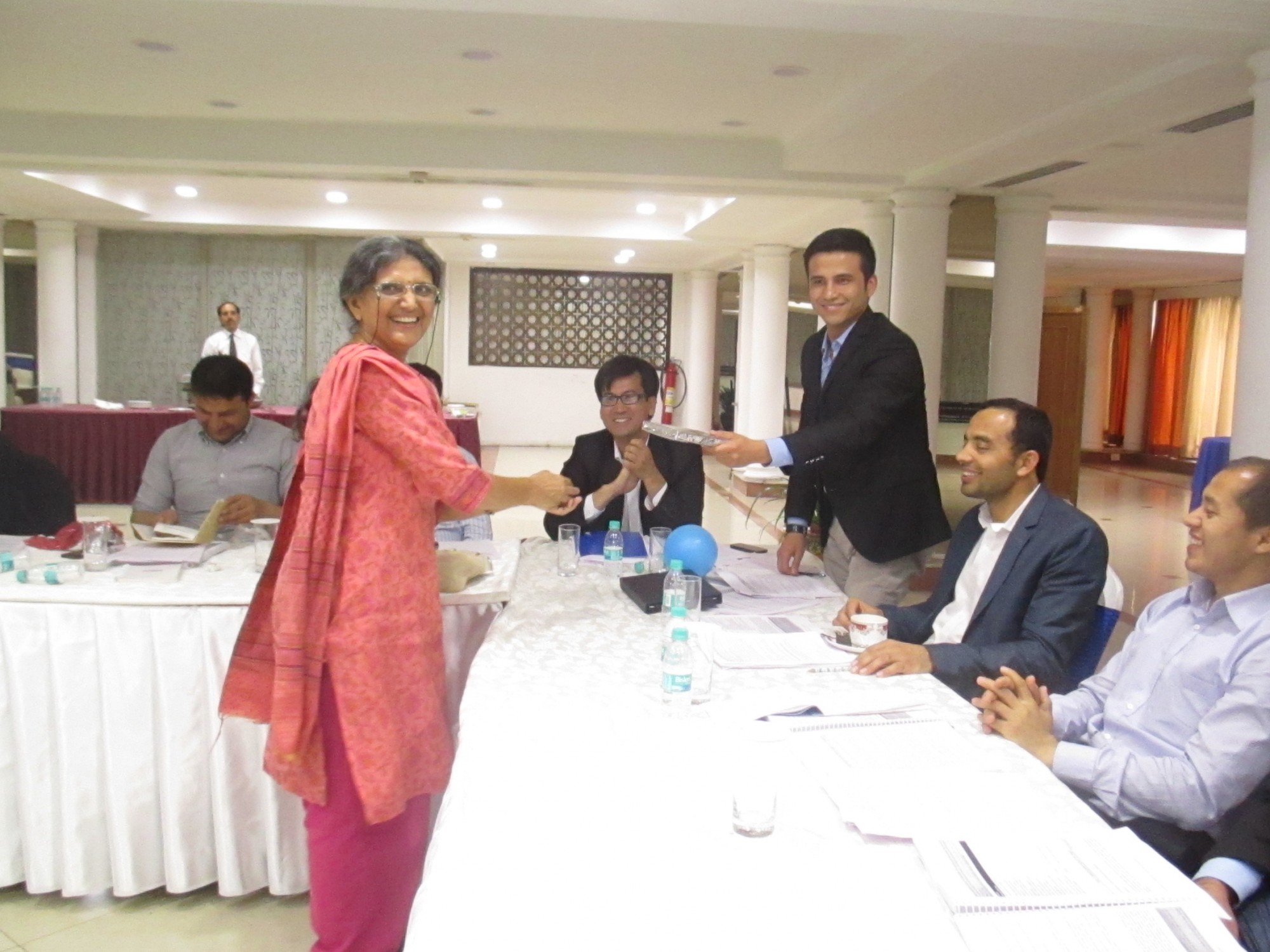EPD is excited and proud to publish its Annual Report 2014, which serves to inform our donors, stakeholders, beneficiaries and the general public on the progress made in our work. In 2014, EPD grew in every sense, making the transition from a relatively new organization founded in 2010 to a well-established leader in civil society. We are now implementing programs all across Afghanistan, with provincial networks established in 9 provinces. Read More…
EPD’s Annual Report for 2018
- 0
- 0
Holding the Government Accountable – Launching the Afghanistan Gender Equality Report Card
- 0
- 0
EPD’s launch of the Afghanistan Gender Equality Report Card in Kabul on March 12th comes at a critical time as Afghanistan enters the Transformation Decade. As the government increases their on-budget financing, it is critical to revisit the thousands of commitments that have been made to women and gender equality. This research assesses both progress and shortcomings, from the perspectives of 154 Afghan women across five provinces. Read More…
- 0
- 0
EQUALITY for Peace and Development (EPD) is a nonprofit, non-governmental organization dedicated to empowering women and youth at the community and policy levels in Afghanistan, established in early 2010 by Ms. Nargis Nehan.
Building a Better Budget – Reporting on Afghanistan’s Budgeting-Service Delivery Nexus
- 0
- 0
While the government of Afghanistan is in transition, EPD launched a critical report on the 28th of January at the Park Star Hotel in Kabul on the budget-service delivery nexus, interrogating the linkages between the national budget process and service delivery. The report argues that an increase of discretionary authority in the national budget, and effective accountability mechanisms, could potentially restore the public’s faith in the government. Read More…
Training Representatives of Six Pilot Ministries on Gender-Responsive Budgeting in Kabul
- 0
- 0
In order to improve gender-sensitive policy-making in Afghanistan, EPD conducted a 4-day training in Kabul for 24 representatives of six pilot ministries (MoE, MoPH, MoHE, MAIL, MRRD and MoWA) between 29 December and 01 January. The training was organized with the aim of developing the understanding of GRB among the participants in order to incorporate GRB into their ministry’s policies and programs. Read More…
Independent Review of the Afghanistan 1394 Draft National Budget
- 0
- 0
Through the ACTA platform, EPD launched its Independent Review of the Afghanistan 1394 National Budget Draft in November 2014. Afghanistan stands at a critical juncture with a new cabinet recently installed, and the London Conference. The report, besides providing a snapshot of the 1394 draft national budget, also focuses on the key indicators of fiscal sustainability, public finance management and budget reforms. Read More…
Strengthening Access to Justice for Women Affected by Violence – Training in Panjshir
- 0
- 0
As part of a year-long project to strengthen access to justice for women affected by violence, EPD organized several trainings and workshops in Panjshir province on the Elimination of Violence Against Women (EVAW) Law. The aim was to increase community awareness about constraints for women to have access to justice, women’s rights, and women’s participation. Read More…
sample post
- 0
- 0
The training sessions were based on EPD’s developed GRB manual and covered a variety of issues with separate training sessions on basic concepts of gender, gender-based violence, gender mainstreaming, government budget processes and budget reforms, gender and the national budget process, GRB tools, applying GRB in the budget process, the design of gender-sensitive indicators, and
Promoting Gender-Sensitive Public Policy in Afghanistan – Training Government Officials on GRB in New Delhi
- 0
- 0
In order to improve gender-sensitive public policy and budgeting in Afghanistan, EPD conducted a Training of Trainers (ToT) based on EPD’s developed GRB manual for senior government officials in October in New Delhi. The training sessions were based on EPD’s GRB manual and covered a variety of issues, including GBV, gender-mainstreaming, and budget processes. Read More…

